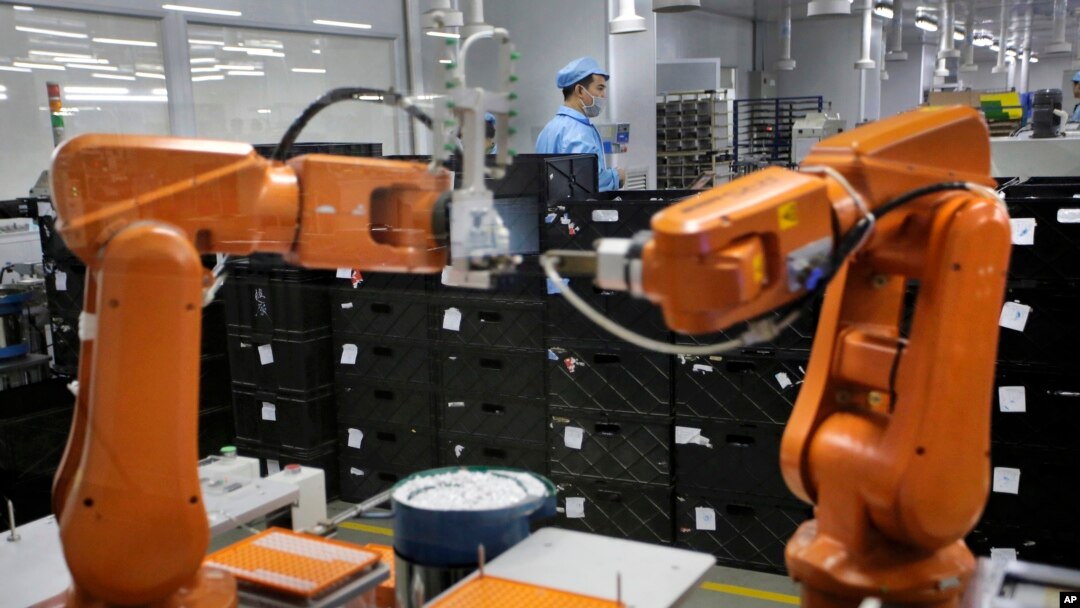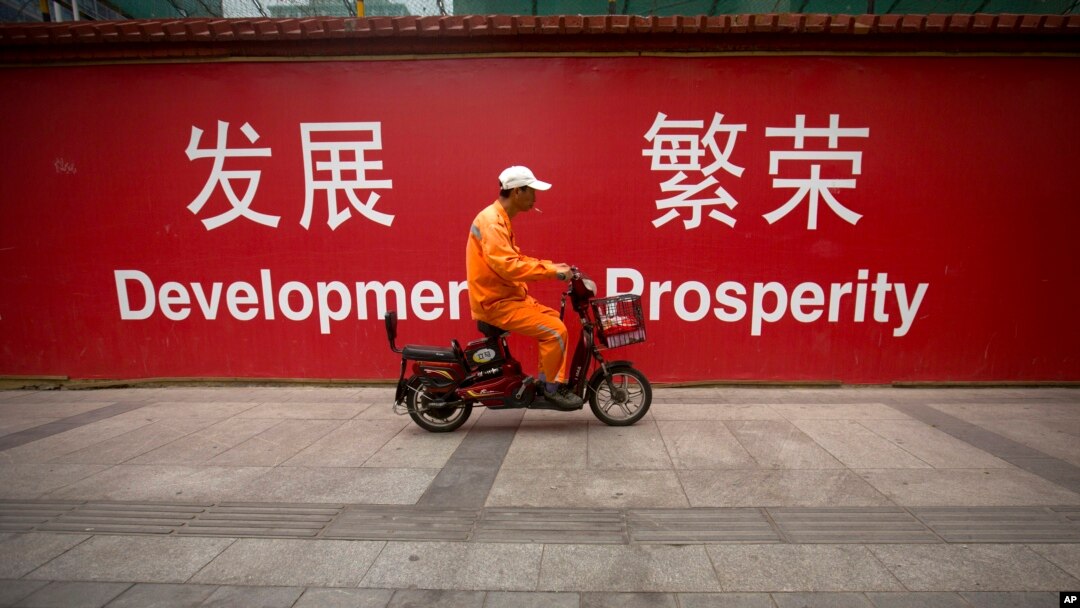The Group of 20 nations, which meets in the Chinese city of Hangzhou Sunday, is expected to take a formal stand on curbing the growing trend of trade and industrial protectionism around the world, two sources connected to negotiations told VOA.
Leaders of the world's largest economies are convinced that "trade and investment openness" are essential to stop an economic decline, and competitive protectionism would further damage the global economy, sources said. But there are serious questions about whether they would take steps to implement the joint position because it would mean short term economic sacrifices.
China is spearheading the campaign for openness because it fears that Chinese exporters would face stiffer resistance in Western countries due to of the rise of protectionist sentiments. Support for protectionism was evident during the Brexit debate in Britain, and in the ongoing presidential race in the United States. Parts of Europe, including Germany, have seen protests by jobless steel workers, blaming China for their plight.
"China is worried about growing resistance to its goods in foreign markets. But its own protectionism is politically too costly for President Xi Jinping to alter," David Kelly, head of consulting firm China Policy told VOA.

FILE - A Chinese worker is seen behind robotic arms at a technology factory in Shenzhen, southern China, Aug. 21, 2015. China is spearheading a campaign for openness fearing that Chinese exporters could otherwise face stiffer resistance in Western countries.
China is anxious to strengthen its image as a fair trader because of accusations that the government subsidies local industries to give Chinese exporters a price advantage on international markets. It is this impression that leads to many countries imposing anti-dumping sanctions on Chinese goods, which is a major hurdle for exporters in China.
"Chinese leaders are more interested in consolidating China’s image as a country which is credible, stable and well-resourced financially," Kelly said.
Beijing wants Western nations to lift anti-dumping sanctions against Chinese goods but would do little to create a level playing field for foreign investors, analysts said.
Change of climate
U.S. President Barack Obama and the Chinese president have both committed the world's two biggest economies to the Paris climate agreement on Saturday.
“Despite our differences on other issues, we hope our willingness to work together on this issue will inspire further ambition and further action around the world,” Obama said soon after he arrived in Hangzhou to attend the meeting. “It was under Chinese leadership that much of this progress was made,” he added.
U.S. President Barack Obama (L) and Chinese President Xi Jinping shake hands before a bilateral meeting in Hangzhou, China, Sept. 3, 2016. An agreement they reached on climate change is being seen as a major milestone.
Some analysts believe that the joint ratification was part of a deal reached by envoys working in the background. Washington may have agreed to back China's proposal against trade protectionism in return for the climate change deal. Whatever the reasons, China's acceptance of the Paris agreement will be seen as a result of Obama's persuasive powers, and enhance his legacy, they said.
The agreement is being seen as a major milestone which will have a positive effect on discussions over trade and other issues at the two-day G-20 meeting.
The joint move should be seen as a case of "concrete cooperation on an issue where China and the U.S. used to be captains of opposing teams and now are working together for the benefit of the international community," said Paul Haenle, director of the Beijing-based Carnegie-Tsinghua Center for Global Policy.
Fear of dumping
Haenle thinks the G-20, which is being held for the first time under the presidency of a major non-Western nation, provides a rare opportunity for the Chinese president to counter protectionism as well as enhance his own world image.
"Many major industrialized nations around the world are now experiencing strong anti-globalization and protectionist sentiments, as we saw with the British vote to leave the EU and the success of Republican candidate Donald Trump and Democratic candidate Bernie Sanders in the U.S. presidential campaign," Haenle said. "This context provides a leadership opportunity for China and for Xi Jinping, now nearing the end of his first 5-year term."
Political observers believe Xi, like his predecessors, would opt for a second 5-year term.
As this year's president, China is also pushing the G-20 to reach a broad agreement on global trade and reducing the dependence on bilateral agreements between countries. There is a confusing array of hundreds of agreements between different countries, which is believed to divide the world of trade.
"In principle, most trade economists agree that multilateral agreements are much more beneficial than bilateral agreements. I don't expect opposition to the idea," CEIBS Professor of Strategy & International Business Klaus Meyer told VOA.
"The problem is to get everyone to agree on the content of those rules. As the World Trade Organization has been demonstrating over the past two decades, that is easier said than done," he said.


